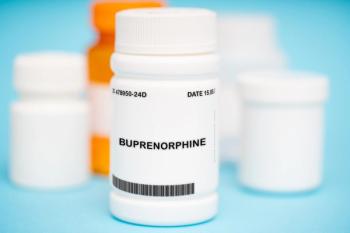
Outsourced specialty drugs: Who is accountable?
More and more hospitals are using specialty pharmacies as suppliers of injectable biotech therapies. For the most part, the drugs are shipped directly to the patients, physician offices, or home infusion vendors, but there are times when the drugs are delivered to a hospital to be given at an on-site infusion clinic or in hospital-based physician offices. Pharmacy directors may be wondering exactly where their responsibility for these drugs begins and ends.
More and more hospitals are using specialty pharmacies as suppliers of injectable biotech therapies. For the most part, the drugs are shipped directly to the patients, physician offices, or home infusion vendors, but there are times when the drugs are delivered to a hospital to be given at an on-site infusion clinic or in hospital-based physician offices. Pharmacy directors may be wondering exactly where their responsibility for these drugs begins and ends.
Gouveia noted that most specialty pharmacies are "really like a wholesaler, except a big difference is that they do reimbursement." In fact, that might be one of the biggest reasons specialty pharmacies as a whole have been doing so well. Typically, these drugs provide treatment for small populations of patients with rare or chronic conditions with a cost averaging $1,000 to $1,500 per dose. According to a 2004 BusIntell Report published by Knowledge Source, specialty drugs cost an average of $18,000 per patient per year, but may run as high as $350,000.
According to Fred Pane, R.Ph., senior consultant, Oncology Management Consulting, pharmacy directors must be involved in selecting specialty pharmacies. "We may need site reviews to have the information to present to the hospital's risk management and legal departments, as well as the Joint Commission on Accreditation of Healthcare Organizations," he said. "You're bringing in products that can't be checked for accuracy, so you must be sure they're coming from a reliable company."
Gouveia pointed to a situation where a manufacturer may use three different specialty pharmacies to deliver one drug. "How do we pick which one to use? How do we find out about them? And do I really have time to go and visit them all to check in fact that they use proper procedures and have proper supervision?" he asked rhetorically. "It's a very leaky system."
Additionally, due to JCAHO's recent adoption of Chapter 797 of the United States Pharmacopeia-National Formulary (USP-NF), which describes the proper handling of sterile preparations, Pane believes that many hospitals will have to outsource the preparation of sterile products if they can't comply. "This is more stringent than before, and most community hospitals are not equipped to handle the changes," he said. He wonders what risks outsourcing this service would have for both the hospital and pharmacy director. (For more on USP Chapter 797.)
The JCAHO standards are quite clear, according to Darryl S. Rich, Pharm.D., M.B.A., FASHP, a hospital and home care field representative for JCAHO. "We hold the hospital ultimately responsible for these products," he said. In fact, many specialty pharmacies are actually accredited by JCAHO themselves and would, therefore, already be required to comply with USP-NF 797, and compliance is also required by many state board of pharmacy regulations, Rich continued.
Newsletter
Pharmacy practice is always changing. Stay ahead of the curve with the Drug Topics newsletter and get the latest drug information, industry trends, and patient care tips.























